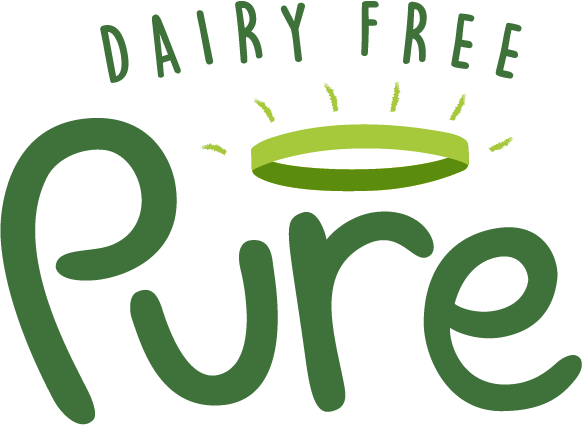Dairy Free Breast Feeding Advice
A big concern of dairy free involves babies and breastfeeding. Mothers that avoid milk often worry if their child is receiving enough nutrients, while others wonder if their baby has a dairy allergy or lactose intolerance. It can be difficult to identify food problems with babies, as reluctance to feeding or mild symptoms may just be down to general baby fussiness. This can be still be daunting for new mothers, though, especially when they see other babies guzzling away!
While every person has individual dietary requirements, it’s generally recommended that mothers eat whatever they like while breastfeeding – avoiding excessive alcohol and caffeine, of course. A healthy and balanced diet is ideal, including plenty of fluids. However, if you do consume considerable amounts of milk and dairy, and your baby is experiencing symptoms like bloating, vomiting, coughing and wheezing, there’s a chance she may be affected by the proteins in cow’s milk.
It’s very important that you talk to your healthcare provider before making any drastic changes to your diet. However, if you are concerned that your baby has an allergy or intolerance, there are a few simple steps you can take.

IDENTIFY
If you’re breastfeeding it’s important to keep an eye on your diet. Keeping a food diary can help, so you can easily identify what you’re eating. Remember that dairy comes in many different forms, and while you may have a limited consumption of milk, cheese and cream, you might be enjoying traces of dairy in sauces and baked goods.
Make a list of the food you regularly eat and investigate the ingredients. Food labels should clearly state if the product includes dairy, but if you’re unsure, a quick search online should confirm. You can also speak to a qualified dietician who can uncover milk in disguise – it’s incredible how dairy can sneak its way into all types of food.
SCHEDULE
When is baby most fussy? When does she experience symptoms? If problems occur shortly after you’ve consumed milk, then there’s a very strong chance that this is the cause. It’s difficult to keep to a set schedule when it comes to hungry babies, but try to limit your dairy in the hours leading up to a feed.
If you’ve got a big meal planned that you know involves dairy, take the precautions you would do with alcohol. Expressing milk or switching to formula is just as beneficial to your baby, and will make sure that she’s eating happily while you can enjoy yourself.
REMOVE
If cutting back on dairy isn’t doing the trick, you may have to remove it from your diet completely. Seek out alternatives to ensure that you’re not depriving yourself or your baby – remember, there are plenty of dairy free substitutes available nowadays, from soya milk and cashew-nut cheese, to coconut cream and Pure Dairy Free spreads.
A good timescale for diet adjustments is 2-3 weeks. While a dairy sensitive baby should improve in under a week, by making these changes for a longer period you can fully establish the problem.
REINTRODUCE
Healthcare providers recommend bringing dairy back into your diet slowly. This will ensure both you and baby are gradually reintroduced, and won’t suffer from adverse reactions. It will also help you to realise if dairy was, and still is, a problem.
The majority of babies develop temporary lactose intolerance or cow’s milk sensitivity. This is often linked to a tummy upset, and they get it over it quickly. This short term sickness is nothing to worry about, and there’s very little chance that your child will grow up with an ongoing condition.
EDUCATE
If milk is not the problem but your baby is still experiencing symptoms, learn about the other food types that are linked to problematic breastfeeding. Broccoli, cauliflower and cabbage are regular offenders, making for a windy and unsettled baby. Onions, beans and spicy food can also be challenging, so try removing any excessive amounts from your diet.
Other suspects can include food that another family member is allergic to, or a food that you’ve recently eaten a large amount of. New food can also take a while for baby to adjust to, and interestingly, food that you don’t actually like but are eating for the benefit of your baby can cause issues.
If your baby isn’t feeding properly it could be down to normal baby fussiness. This should subside with regular nursing, but if not, and if it’s accompanied by vomiting, rashes or colic, it could be a sensitivity to the food you’re eating. If you’re worried about your baby’s feeding, then the best course of action is to speak to your health advisor. And remember, if you do have to remove or limit the dairy in your diet, there are plenty of delicious, dairy free alternatives you can still enjoy.
